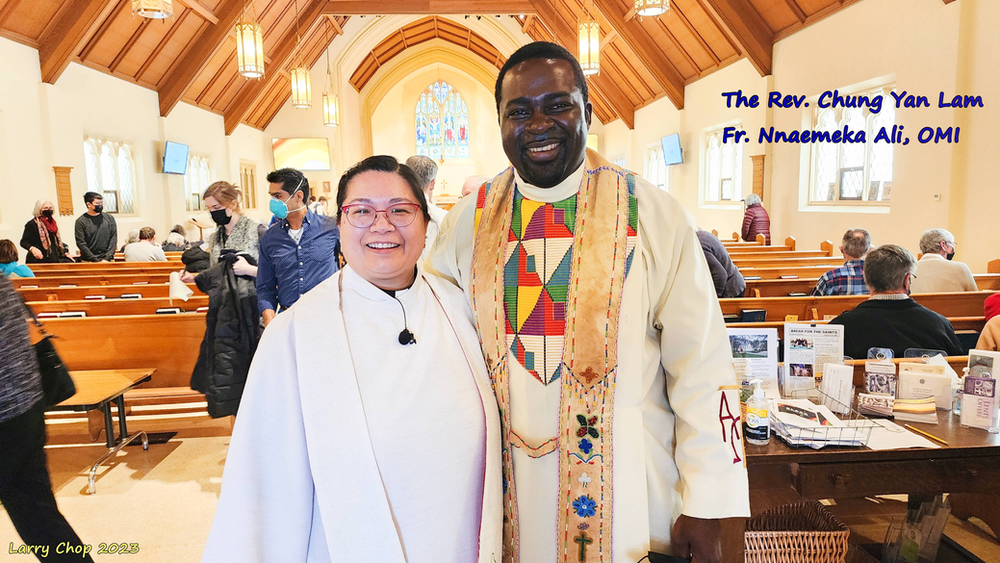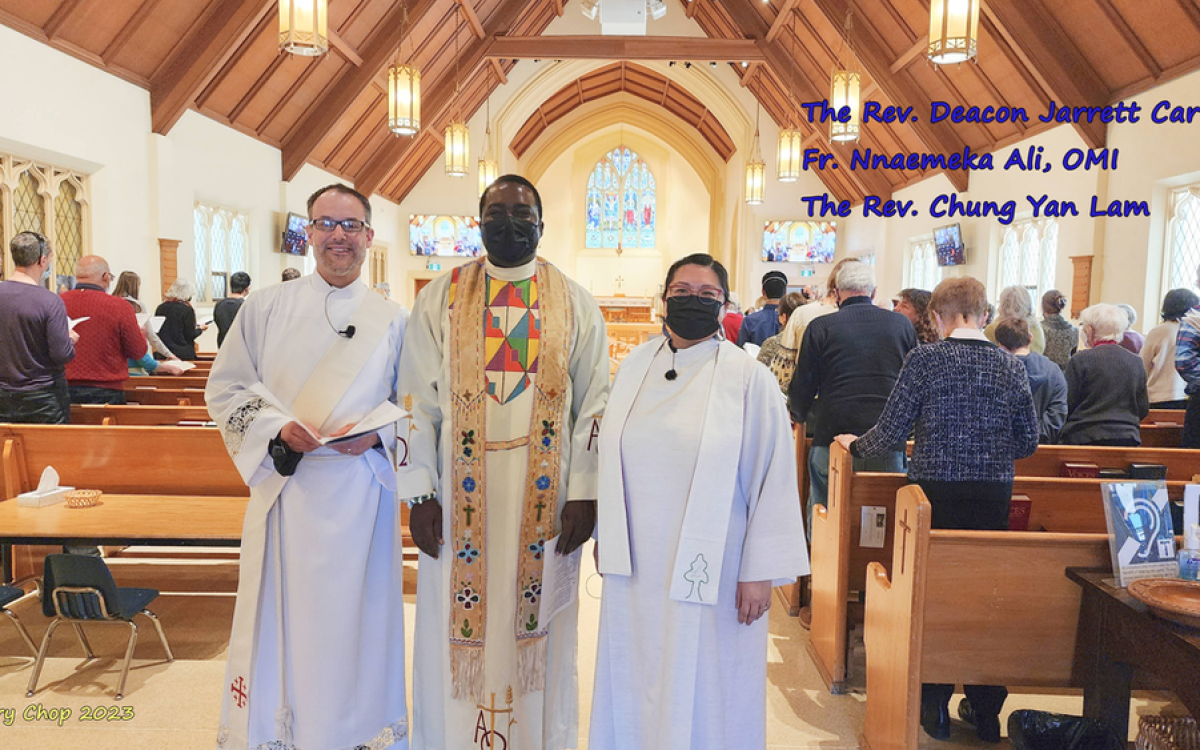On 19th February 2023, I was privileged to worship at All Saints Anglican Parish. It was a special Eucharist in honour of Black History Month. So, the Associate incumbent, Reverend Chung Yan Lam, invited me to preach. And being from a community of storytellers, I’m kin to hearing what stories people or communities tell. How do they narrate their “Who I am Story” through welcoming rituals? How is a church’s “Vision Story” expressed in their worship?
For instance, on my arrival at All Saints’ Parish, it was clear that their community is also a storytelling community. It was such a comforting experience to feel at home right upon my arrival in their community. For example, while I was still driving in, one lady asked me where to park behind (her) car. Fortunately, the associate incumbent had already informed me to pack behind her car. But that was just the beginning, as the other welcoming rituals that followed confirmed my initial apprehension.
For one thing, it was such a beautiful experience, but what inspired me most was not just their story as All Saints Anglican Church but the conviction that there is a strong grace in sharing the Lord’s Supper. But, unfortunately, I must recognize that, on the doctrinal level, there are still so many hurdles to overcome to consummate this friendship one experience each moment we participate in each other’s celebration.

Evidently, after the beautiful celebration, I wondered why Christians, especially in North America, are not encouraged enough to share in each other’s worship. I might be wrong today, but I believe no Christian denomination can survive alone, especially in the West.
Unfortunately, we have ironically made Christianity a proud religion. Its force as the only religion where the embodiment of God was consummated in the birth, death, and resurrection of Christ has weakened its theology, making it pride itself as the only way to God. Moreover, its relationship with the Eurocentric hegemony, which translates into the famous kingdom of God theology, has made Christianity too arrogant to recognize its need for others.
Besides, her arrogance goes beyond her relationship with other religions. Among Christian communities, few are those who share in the table of the Lord. Some go as far as berating or denying each other the possibility of making heaven. Ironically, Christ pointed out that there are many mansions in his father’s house. And the author of the Apocalypse says: “I looked, and there before me was a great multitude that no one could count, from every nation, tribe, people and language, standing before the throne and before the Lamb.” (Rev. 7:9).
However, as I think of this, I remember Paul’s encounter at the Areopagus (Acts 17: 16-34). Then, Christianity was still a small group. As a minority, Christians were thus neither arrogant nor pretentious. So, when Paul was persecuted, he ran from one city to the other (Thessalonica, Berea, Athens), accepting the help and communion of different communities. Communities welcomed and sheltered him from dangerous elements in each city he entered. The only thing that mattered to them was his profession of Christ’s death and resurrection.
Today, even with the recent murder of Bishop O’Connell, I still believe that Christianity is not yet persecuted in North America. However, it’s now no news that we are today a visible minority and that our voices are among those on the margins of society. It is hard to swallow this fact, but we all know that our voices no longer make laws in North American society. So, like Paul and his brothers and sisters, our survival is no longer a private matter. Communities must learn to welcome one another. We ought to open our doors to each other if we hope both to survive and to show the world the unifying message of Christ. We need to unite to reinvent ourselves.
Furthermore, while Paul was in Athens, he went about discovering the city. And among the beautiful and sacred encounters he had was that of an unknown God. He never pretended like the Athenians were a godless people; instead, he saw them, with all their sacred religions, as a blessed nation.
“People of Athens! I see that, in every way, you are very religious. For as I walked around and looked carefully at your objects of worship, I even found an altar with this inscription: to an unknown god.” (Acts 17:22-23).
Paul never condemned their gods as idols; instead, he talked to them about his newfound faith, which he immediately embodied in the unknown God. And despite the diversity of his teachings, they only found his theory on the resurrection strange.
Today, as I look at our Churches struggling to keep faith in this Northern Hemisphere, I imagine it’s time to explore Paul’s openness to other religions. We must learn from his ability to understand that there are many ways to understand the Christian faith. And to accomplish that, the Church should be humble enough to realize that pride will be its end. None! Neither the Roman Catholic Church nor the entire Protestant Churches can survive if left alone. It’s, therefore, necessary that we increase our ecumenical relationship. We must let go of our pride and allow Christ to take flesh in us. We must create space for a new embodiment of Christ in this new age of our continent. The word of God has always been contextualized according to the Kairos. Today and forever, God will keep incarnating in our history, society, and people. So, let the Church say, Maranatha, Come, O Lord, Jesus Christ.






